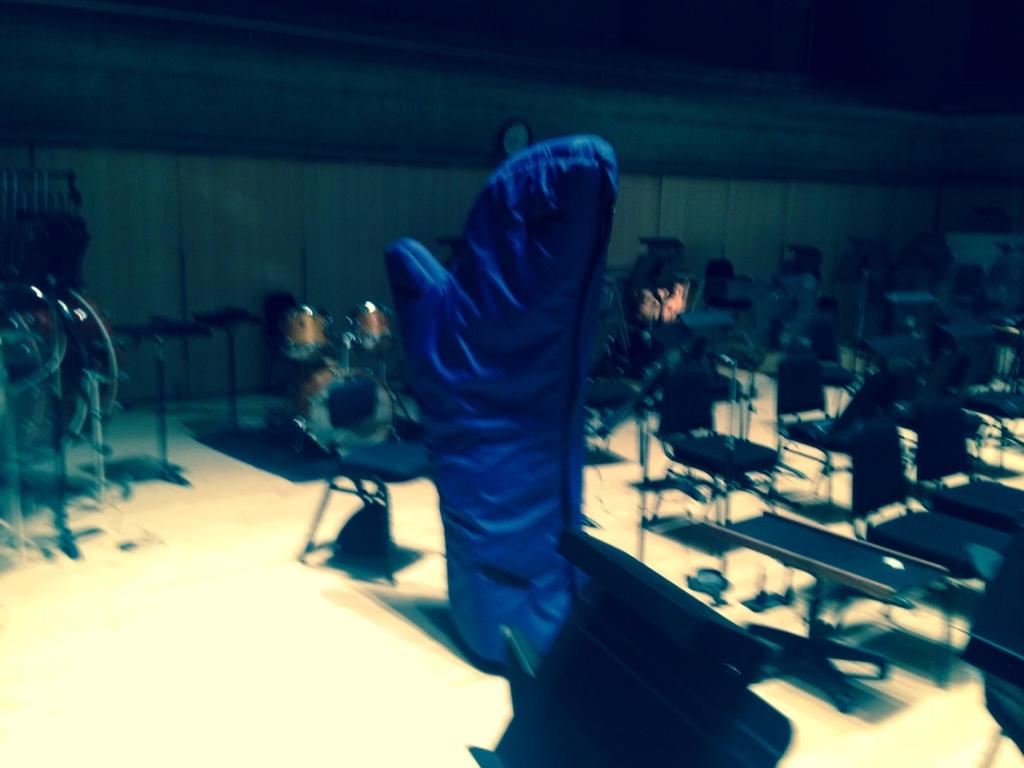
Who makes classical music funny? Victor Borge did it, and so did Anna Russell. The violin-piano duo of Aleksey Igudesman and Richard Hyung-ki Joo are also funny. Ted Dykstra and Richard Greenblatt are hilarious in their show Two Pianos Four Hands. And let’s not forget Peter Schikele (a.k.a. “PDQ Bach”), Dudley Moore, Steve Martin, Bugs Bunny and Monty Python.
What about Toronto’s Second City comedians? They certainly tried to be funny, on Saturday evening, in a show called The Second City Guide to the Symphony, co-presented with the Toronto Symphony Orchestra at Roy Thomson Hall. But the results were tepid, uneven and sometimes downright desperate.
The six-player troupe, fronted by actor Colin Mochrie, were working off a script – by Scott Montgomery, Klaus Schuller and Carly Heffernan – that was heavily reliant on superficial and unoriginal ideas. Neither the cast nor director Chris Earle were able to rise much above their threadbare material. Poking fun at the stuffiness and formality of classical music may be like shooting fish in a barrel, but you do need a loaded gun.
The show opened like a sports-broadcast, with commentators talking about the upcoming match between the TSO and Second City – a sketch that was a little too reminiscent of an old PDQ Bach routine.
About twenty more sketches followed. There was a bizarre confrontation between Gustav Mahler (Matt Baram) and an American salesman (Marty Adams). There was an even more bizarre tribute to the flute, with Adams as some kind of 1970s rocker – a cross between Ian Anderson (of the Jethro Tull band) and Meat Loaf. And, at one point, Mochrie attempted to play Mozart’s Clarinet Concerto with a tuba mouthpiece in his clarinet. It was all goofy stuff – but was rarely anything more than goofy stuff.
And there were some musical theatre-style song numbers, including “Life’s a Symphony,” and “Meanwhile in the Lobby,” about nasty ushers who prevent latecomers from entering the hall. The “Composers” song was a list of the woeful ways in which Mozart, Schubert, Beethoven and other greats died. (The influence of Monty Python’s “Decomposing Composers” song was apparent here.)
Fortunately, the show had some musical brains behind it: composer-pianist Matthew Reid was imaginative in his scoring of The Second City Guide to the Orchestra. His use of famous snippets of orchestral music – some Mahler, some Mozart, a dash of Beethoven – was skilful and well-timed. More than anyone else, Reid held the show together.
There was some “real” music on the program, too. TSO music director Peter Oundjian led his orchestra in the overtures in spirited performances of Mozart’s Marriage of Figaro and Glinka’s Ruslan und Lyudmila. Oundjian was also drawn into some the sketches, as well, as a rather wooden version of himself. He should probably stick to conducting and leave comedy to his cousin, Eric Idle.
Over the years, classical music has served as surprisingly fertile ground for comedy – and the funniest “classical comedians” have set the bar high. And perhaps it’s worth noting that the best send-ups of classical music have usually been done by comedians who are also accomplished musicians. What Second City’s Guide to the Orchestra seemed to lack was writers who could mine classical music deeply enough to find something fresh, original and strikingly clever.
However, in one respect, the TSO could count this show a great success: Second City filled Roy Thomson Hall with a youngish, hipstery crowd that I did not recognize. But will they come back for a Mahler symphony? That’s the question.
Colin Eatock
- ISSUES | The Pulitzer, And What Classical Music Needs To Do - April 19, 2018
- SCRUTINY | Aisslinn Nosky and Tafelmusik Present a Cheeky “Baroque Misbehaving” - April 25, 2015
- CONCERT REVIEW | The Unmistakable Elliot Madore - March 27, 2015



